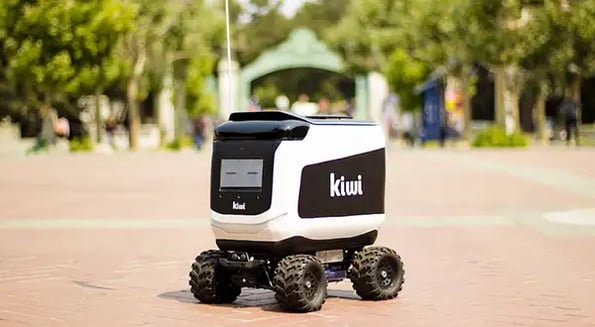Kiwibots — rolling robots that deliver burritos and smoothies — have become a fixture on UC Berkeley’s campus thanks to their creepy-cute “faces” and low delivery prices.

But while the robots appear to be autonomous, the San Francisco Chronicle reports they’re actually operated by remote workers in Colombia who make $2 an hour.
The bodies behind the bots
Kiwi Campus’ technology page shows several videos of Kiwibots using complex-looking computer vision to cross streets and identify obstacles.
But the site doesn’t show the remote workers who use GPS and cameras to send the robots instructions every 5-10 seconds.
Since Kiwibots also max out at 1.5 mph, they also rely on flesh-and-bone humans to pick up food in town and bring it to them on campus — where the bots, on average, transport the food only 200 meters.
Will the robots ever lose their human training wheels?
Kiwi Campus insists its robots are more than remote-control cars carrying Chipotle, calling its system “parallel autonomy.”
But Kiwi’s business model would be strained without human hands — it’s cheaper to pay people $2/hour than build a cutting-edge Lidar system.
Many analysts are unconvinced autonomous delivery bots will ever be financially feasible — anywhere outside of controlled campuses, that is.

